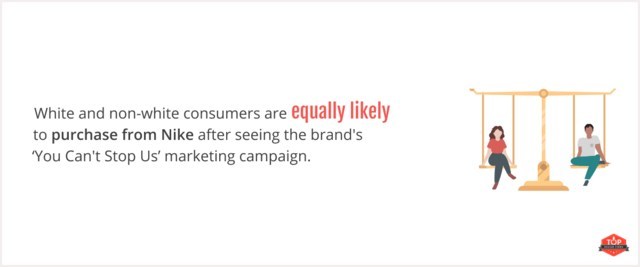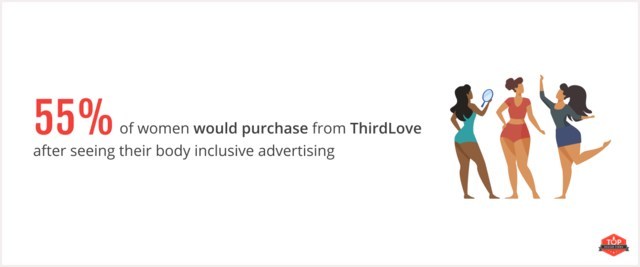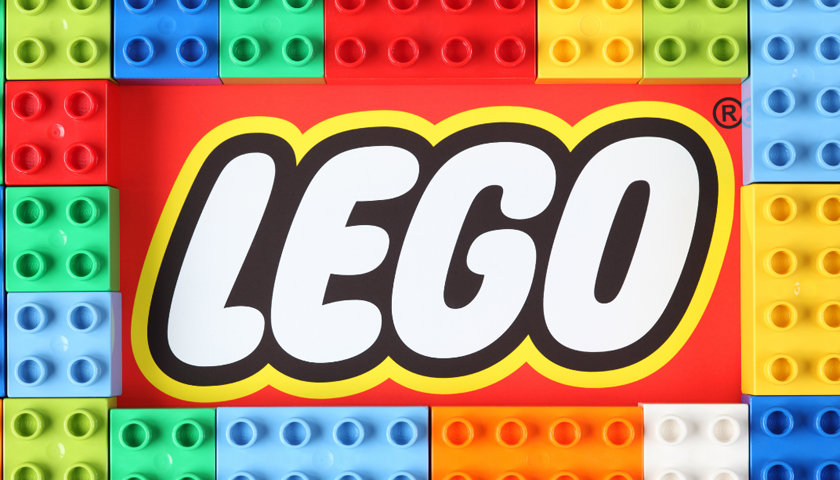Brands are starting to realize that diversity is key to successful marketing campaigns, but executing on inclusive marketing is not that easy. A new report from Top Design Firms reveals that brands need to embody an inclusive message in a way that directly resonates with their target audience.
According to Top Design Firms’ study of 501 people in the U.S., Nike’s marketing campaign, “You Can’t Stop Us,” incorporates inclusive marketing that appeals to its target audience — 46% of consumers were likely to make a purchase after viewing the ad.


Nike’s video not only tells a moving story, but also highlights athletes from different cultural backgrounds and with different abilities to illustrate diversity and inclusion.
Both white and non-white consumer groups are equally as likely (52%) to purchase Nike products after seeing the “You Can’t Stop Us” campaign.
ThirdLove’s Diversity Advertising Resonates With Women
While only 45% of all people were likely to purchase from ThirdLove for themselves or someone else, that percentage jumps to 55% when looking specifically at female consumers.
The lingerie company’s core mission is to offer the perfect fit — an idea that all women can relate to. ThirdLove markets its body-inclusive products with a diverse cast of models, appealing to consumers like Yvette Dubel, a personal innovation mentor that has recently purchased from the brand.
“I chose them because their expressions of diversity and inclusion seem more genuine,” Dubel said. “The very nature of the products and how they market them honor dignity and humanity.”
ThirdLove first connects with its target market by illustrating the importance of the perfect fit. Then, it builds on that message with a diverse lineup of women to market the product.
Savage X Fenty Reaches Younger Consumers With Body Positive Models
Rihanna’s new lingerie and loungewear brand is still gaining traction in the market — only 31% of people were likely to purchase from the menswear line after viewing the brand’s product advertisements.
Savage X Fenty’s focus on social media advertising, however, won over the younger generation. Forty-one percent (41%) of consumers ages 18–34 were likely to purchase from the brand.
Earlier this year, the menswear line went viral for featuring a plus-size black male model on their website.
Younger consumers on Twitter and Instagram voiced support and appreciation for the brand’s body inclusive message and commitment to diversity.
This report also includes analysis of Olay’s Make Space For Women campaign.
Top Design Firms’ 2020 Diversity Marketing Survey included 501 U.S. consumers.
Read the full report here:
https://www.topdesignfirms.com/blog/inclusive-marketing/



